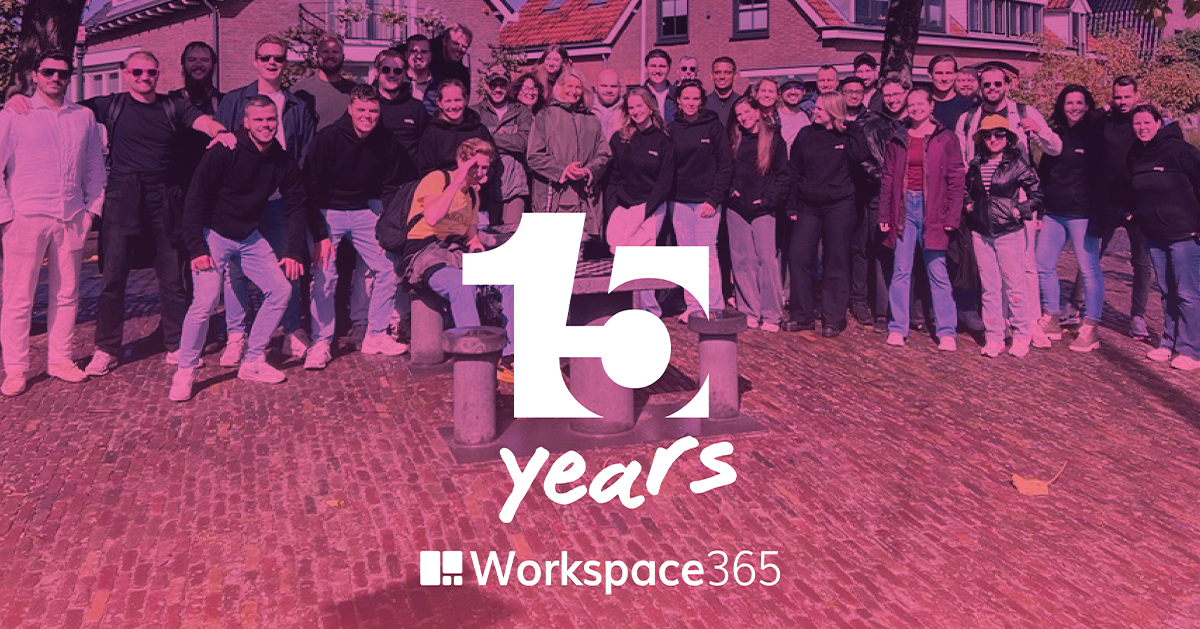In recent years, businesses were forced to go remote, fast. Most had little time or budget to properly test whether their digital tools actually worked for their employees.
Now, the cracks are starting to show; frustrations with clunky technology are no longer minor annoyances, they’re damaging morale and performance.
When technology is intuitive and personalised, employees can focus on what matters. A recent article in IT Pro highlights:
‘Any business which overlooks employee experience around workplace technology, risks losing valued team members who will simply look elsewhere for a workplace that meets their needs.’
At Workspace 365, we wanted to understand the biggest tech challenges employees face and how these impact productivity. The survey of over 1,000 employees working in UK organisations with 250+ staff members highlights key pain points and provides actionable digital workplace simplification for HR to consider.
Workplace technology: Employee challenges in Large UK organisations
Work should be simple. That’s why we explored the Digital Employee Experience (DEX), surveying 1,000+ employees from UK organisations.

Simplification isn’t a nice to have; it’s critical for businesses
Our research shows that 63% of employees are unhappy with the tools they use, with discontent even higher among younger employees at 72%.
Furthermore, almost a quarter (24%) of employees would consider leaving their jobs due to complex IT systems, while another 35% are contemplating it.
The preference for a single, centralised platform is evident, with 49% of employees favouring an all-in-one solution to reduce time wasted switching between tools.
‘Complex systems, redundant tools, and frequent sign-ins waste time and leave employees feeling unproductive, unfulfilled, and at risk of burnout.’ — Workspace 365 research
This echoes a recent US survey for Compucom, which found that nearly a quarter of remote and hybrid workers complained that they were "always having bad experiences with their workplace technology.” Almost half said they'd switched jobs or were actively looking.
‘Studies have shown that there is a strong link between employee satisfaction and the quality of the technology provided by their employer. For instance, a survey by Dell and Intel found that 42% of employees are likely to leave a job due to substandard technology.’ — How Investing in Technology Enhances Employee Morale, cloudology, 2024
HR digital transformation for better retention
This isn’t just an IT problem. It’s a call to action for HR.
Our research shows that 26% of employees lack confidence using digital tools, which points to a broader issue of tech overwhelm across the workforce. In the legal sector, the challenge is particularly stark, with 57% of professionals admitting that excessive tools are hindering their productivity.
Additionally, 65% of employees in large enterprises advocate for technology to enhance efficiency. HR professionals play a key role in this transformation, with three-quarters supporting investment in intuitive HR technology. Notably, HR teams are more adaptable to tech changes, with 80% stating they use all or most of their available workplace technology.
Looking ahead, it is imperative that businesses align their technology offerings with employee needs, particularly around process automation and workplace experience, which can help employees be more productive and focus on tasks where they can add more value.
HR departments that prioritise digital workplace simplification empower employees with intuitive systems, creating a more motivated and productive workforce. HR professionals generally find their technology more relevant to their needs, our survey found that only 4% believe their tools have many irrelevant features compared to 29% in the legal field. But navigating different platforms remains a challenge, with 44% of HR professionals citing difficulties managing multiple systems.
The cost of doing nothing
The UK’s digital skills gap costs the economy £63 billion annually, affecting businesses across industries. Lloyds Bank, commissioned by the Department for Education, publishes an annual Consumer Digital Index, with the latest report revealing that 7.5 million people (18% of UK adults) lack essential digital skills for the workplace.
Moreover, our research found that 39% of employees do not fully utilise available software, highlighting a disconnect between technological investment and user engagement. Excessive notifications and alerts also hinder productivity, especially in HR and healthcare sectors, where managing constant digital interruptions is a growing concern.
Actionable insights for HR leaders
To maximise employee engagement and drive HR digital transformation for better retention, businesses should:
- Integrate seamless systems - Consolidate multiple tools into a unified HR digital workplace to reduce inefficiencies and improve workflow.
- Invest in user training - Provide comprehensive training to equip employees with the skills they need to leverage HR technology effectively.
- Adopt a digital-first mindset - Continuously assess and refine digital tools to align with evolving workforce expectations.
- Prioritise employee-centric technology - Implement digital solutions that enhance job satisfaction, reduce burnout, and foster long-term employee retention.







